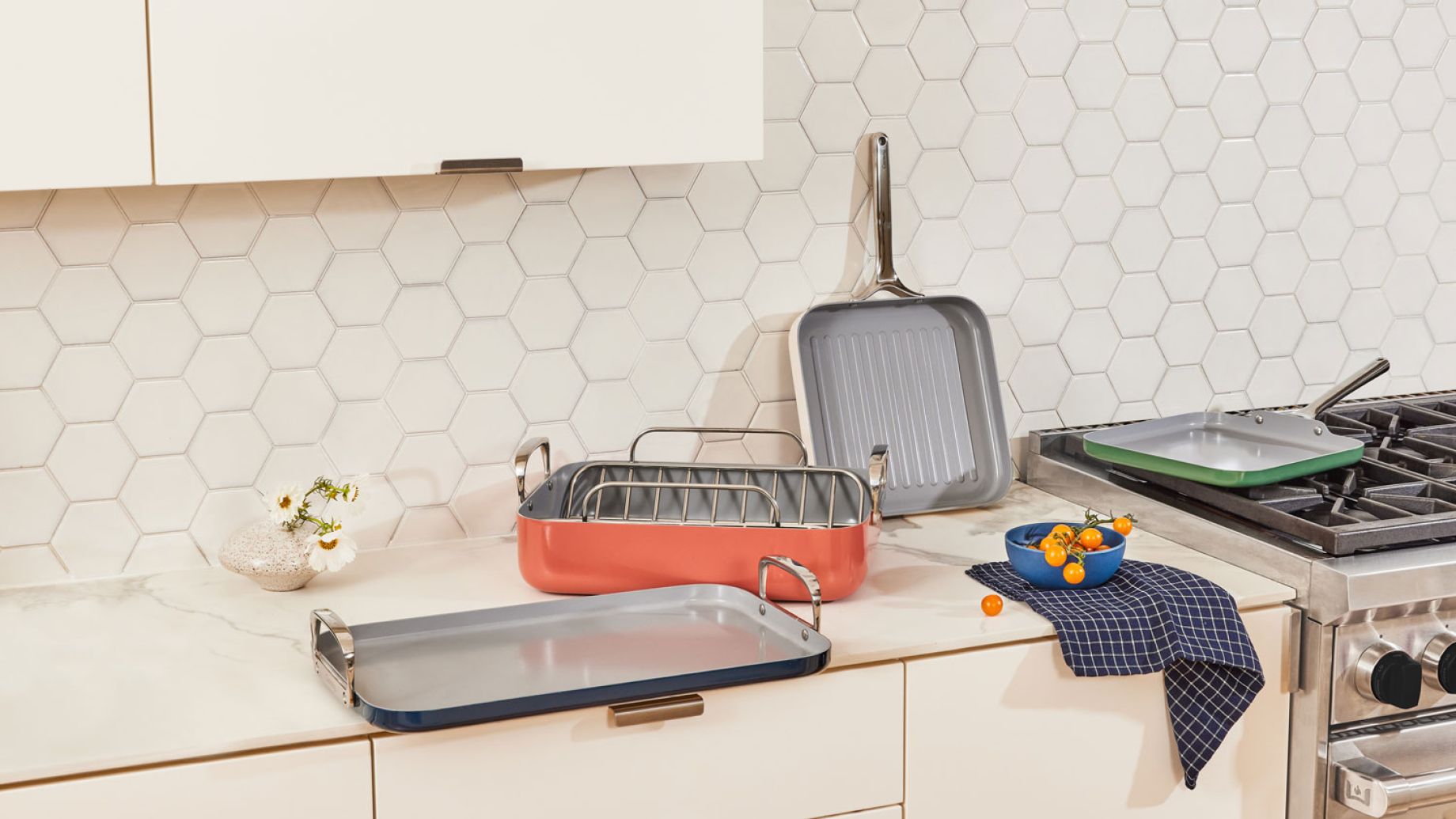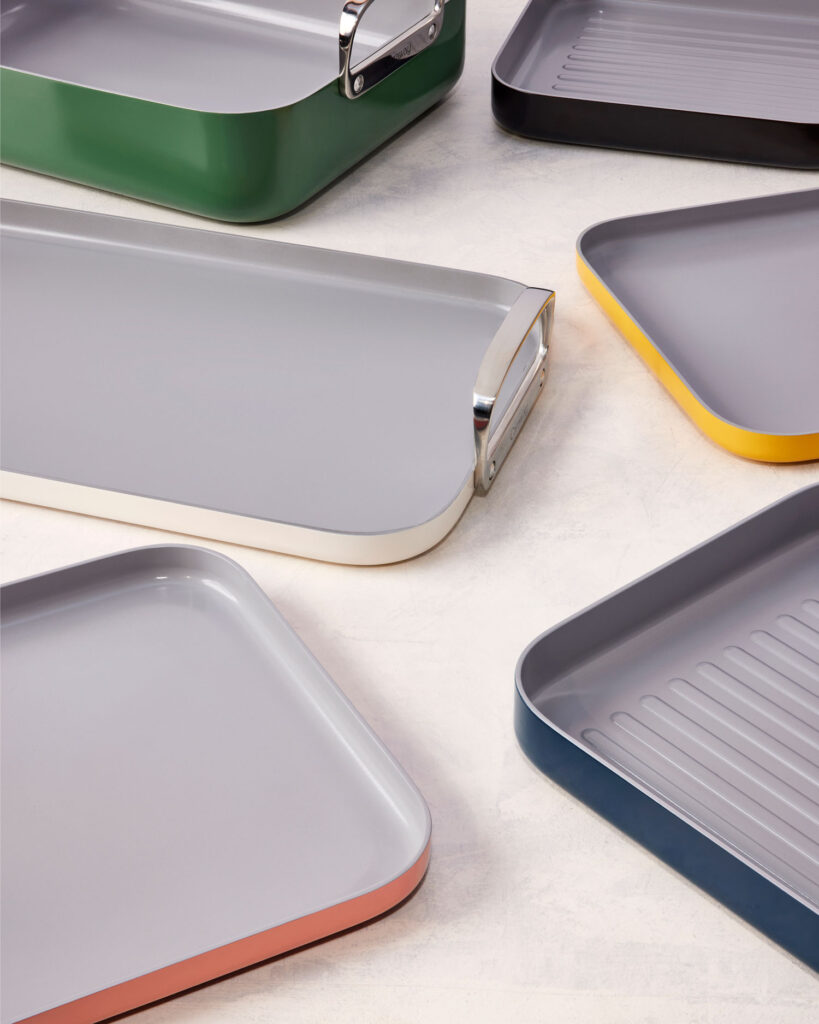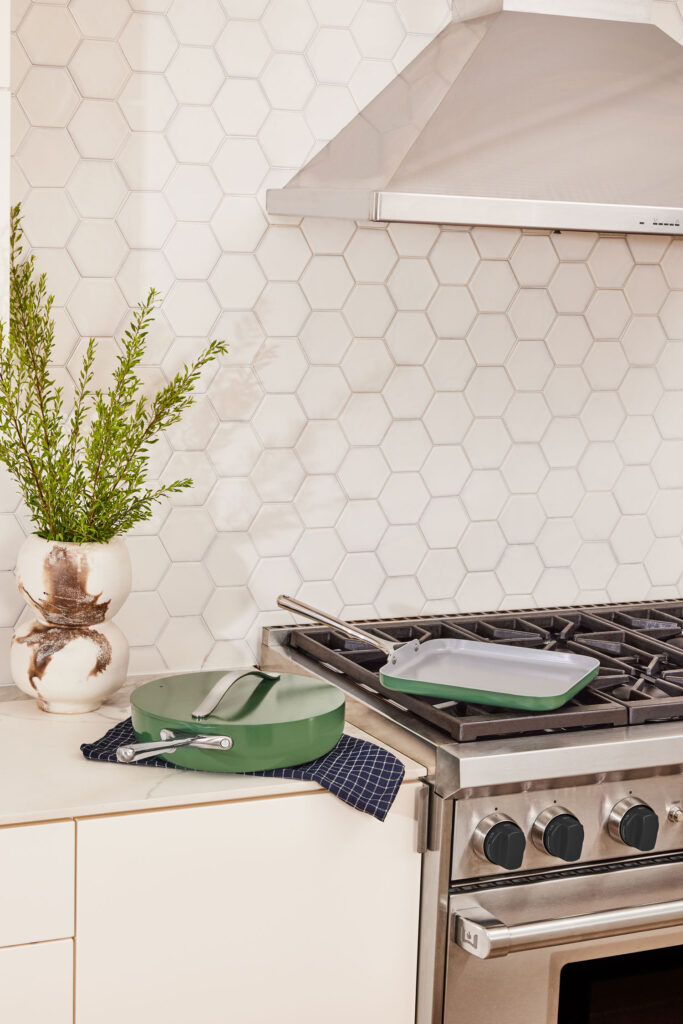
Non-Toxic Cookware: A Great Investment for Healthy Cooking
In recent years, there has been a growing awareness of the impact that our everyday choices have on our health and the environment. One area that often gets overlooked is the cookware we use in our kitchens. Traditional cookware, made from materials like Teflon and aluminum, can release harmful toxins into our food and the air. However, investing in non-toxic cookware is not only a smart choice for our health but also a sustainable option. In this blog post, we will explore the benefits of non-toxic cookware and take a closer look at Caraway, a brand that offers stylish and eco-friendly cookware solutions.
- Health Considerations:
The first and most crucial reason to invest in non-toxic cookware is the impact it has on our health. Traditional cookware often contains harmful chemicals like perfluorooctanoic acid (PFOA) and polytetrafluoroethylene (PTFE), which can leach into our food when heated. These chemicals have been linked to various health issues, including hormone disruption, fertility problems, and even cancer. By switching to non-toxic cookware, such as those made from ceramic, stainless steel, or cast iron, we can significantly reduce our exposure to these harmful toxins. - Environmental Benefits:
Aside from the health benefits, non-toxic cookware also offers substantial environmental advantages. Traditional cookware production processes involve the use of non-renewable resources and often contribute to pollution. On the other hand, eco-friendly cookware options, like those made from responsibly sourced materials, have a lower carbon footprint and reduce waste. By investing in non-toxic cookware, we can contribute to a more sustainable future. - Durability and Longevity:
Investing in non-toxic cookware means investing in high-quality products that are built to last. While traditional cookware may be cheaper upfront, it often loses its non-stick properties quickly and needs to be replaced frequently. Non-toxic cookware, such as ceramic or stainless steel options, offer exceptional durability, ensuring that your investment will withstand the test of time. This not only saves you money in the long run but also reduces waste. - Versatility and Performance:
Non-toxic cookware is not only safe and environmentally friendly but also offers exceptional cooking performance. Ceramic cookware, for instance, distributes heat evenly, allowing for precise cooking and avoiding hot spots. Stainless steel is known for its durability and ability to retain heat, making it ideal for searing and browning. By investing in non-toxic cookware, you can elevate your cooking experience and achieve outstanding results in the kitchen.


Introducing Caraway:
When it comes to non-toxic cookware brands, Caraway is a standout option. Caraway offers a range of stylish and eco-friendly cookware that prioritizes health, sustainability, and functionality. Their products are made from high-quality materials, such as ceramic and stainless steel, which are free from harmful chemicals like PFOA and PTFE. Caraway cookware is designed to last, with a non-stick ceramic coating that is resistant to scratching and flaking. With a dedication to sustainability, Caraway uses responsibly sourced materials and packaging, making them an excellent choice for conscious consumers.
Investing in non-toxic cookware is an investment in your health, the environment, and your cooking experience. By choosing cookware made from safe and sustainable materials, such as ceramic and stainless steel, you can protect yourself and your loved ones from harmful toxins while reducing your ecological footprint. Caraway is a brand that offers stylish and eco-friendly cookware solutions, ensuring that you don’t have to compromise on aesthetics or functionality. So, why wait? Make the switch to non-toxic cookware today and enjoy a healthier and more sustainable cooking experience.
